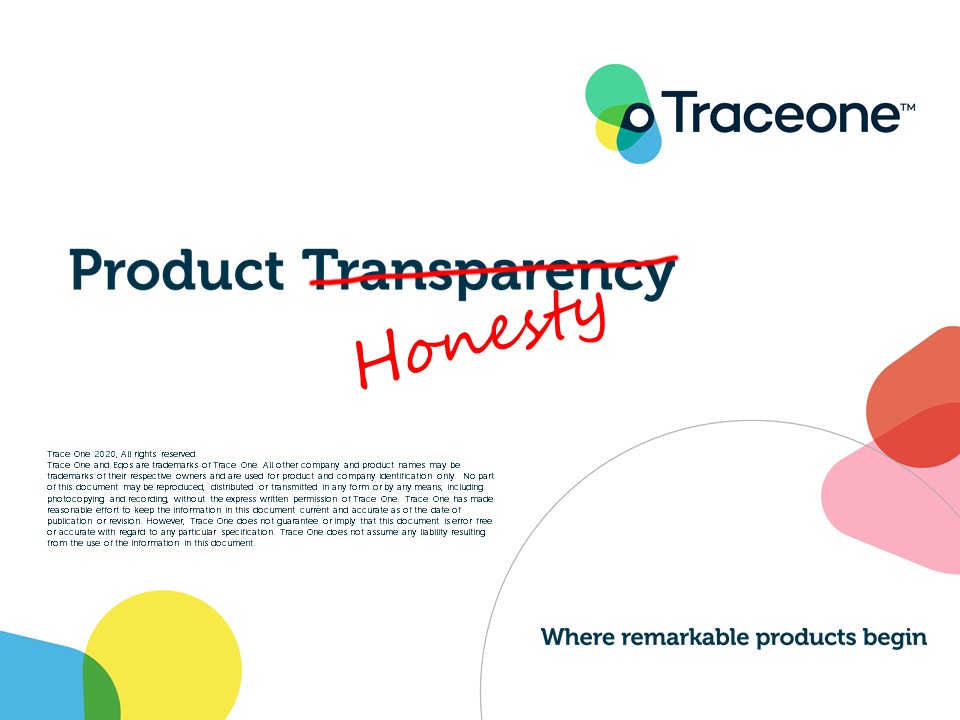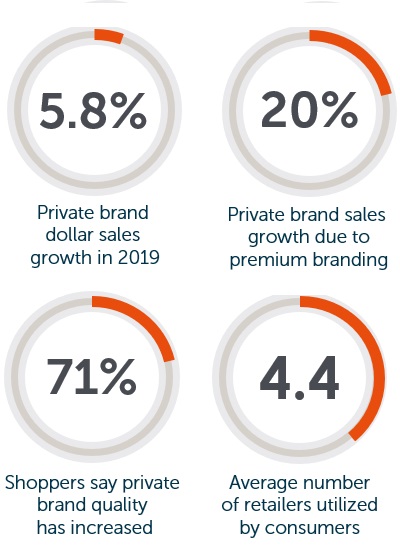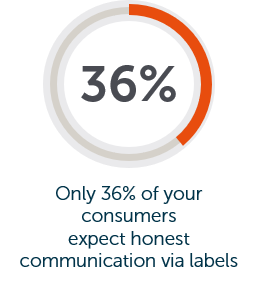Trace One supports brand owners in the task of centralizing product and corporate responsibility data, with a suite of modular solutions and templates that make working with your partners efficient and cost effective. You don’t need to increase your teams head count or request internal IT resources. Growth requires change. Change requires commitment. Can your private brands program afford not to adopt practices and solutions that focus on product proof, brand affinity, and corporate responsibility?





Over 12 years industry experience working with some of the biggest retailers in both the US, UK, and EU.
don.low@traceone.com
Private brand dollar sales grew 5.8 percent in 2019, outpacing national brands by a wide margin. Much of that growth is driven by online sales and mass merchants who focused heavily on private brand programs. Private brands accounted for 16 to 20 percent of CPG dollar spending in the U.S. The share of spending grew across all generations but was strongest among Millennials and Gen Z This is remains less than other regions like the UK and EU where we see 40 – 50%, so prospects for private brands growth in the US have been and remain very solid.



Life amid COVID-19 has forced U.S. consumers to adopt new behaviors, dramatically impacting how they shop, work and go about their daily lives. Trips to the grocery store are now once weekly trips to buy essentials and stock the pantry for home cooking. And, vulnerable consumers now rely on online ordering and delivery services they were once reluctant to try.
Both pre and post pandemic data tells us that private brands is a market with fantastic opportunities for growth and margins. The trends that were important in 2019 are still very relevant today. Sleek packaging, higher quality, lower prices and better-for-you products will keep consumers latched on to your private brands, particularly in the Millennials and Gen Z demographic.
When I say transparency you will immediately think of a complex web of suppliers, and block chain technology to understand it. While this remains important for many reasons, what I am actually referring too here is Product Transparency. In fact, lets call it what it really is. It's about being HONEST. These stats come from a publicized study by Futerra and the consumer goods forum. TRANSPARENCY AND THE HONEST PRODUCT. 70% of consumers are only interested in transparency about the product they are buying…. They don’t care about the image of the company who made the product. That’s not to say that corporate image and CRS isn't important….



The FDA requires only five basic pieces of information on a food label: product identity, net contents, nutrition facts, ingredients/allergens and a signature line with the processor’s contact information. But this really does represent a minimal amount of product information, and doesn’t work for retailers to drive consumer trust in their products.

So which additional product attributes should or could be promoted to take advantage of these online platforms? Additional formulation disclosure helps to build Product Proof. Where a products ingredients come from is not only important to instill trust, but it can also help a consumer in choosing a product based on their values.
